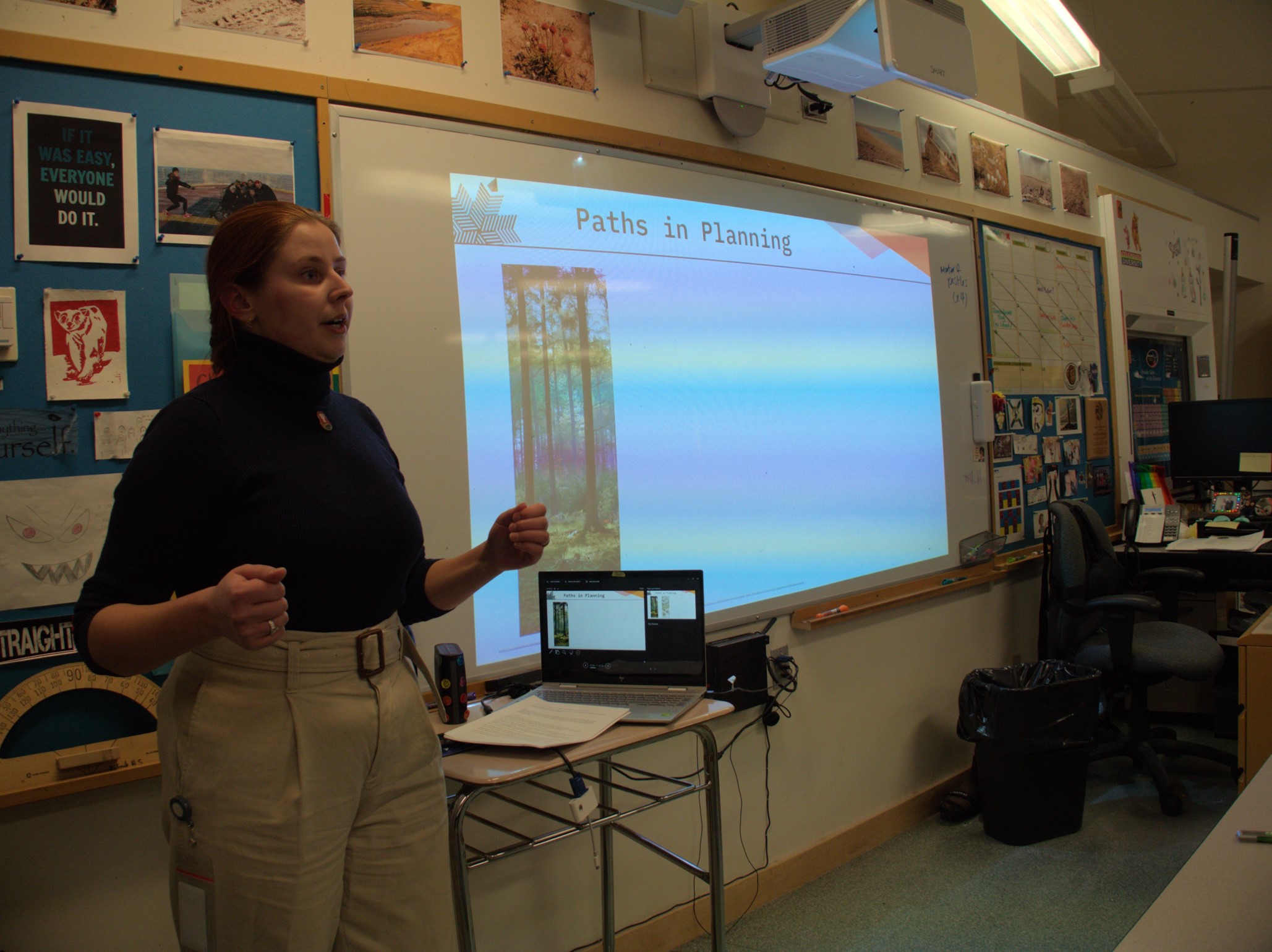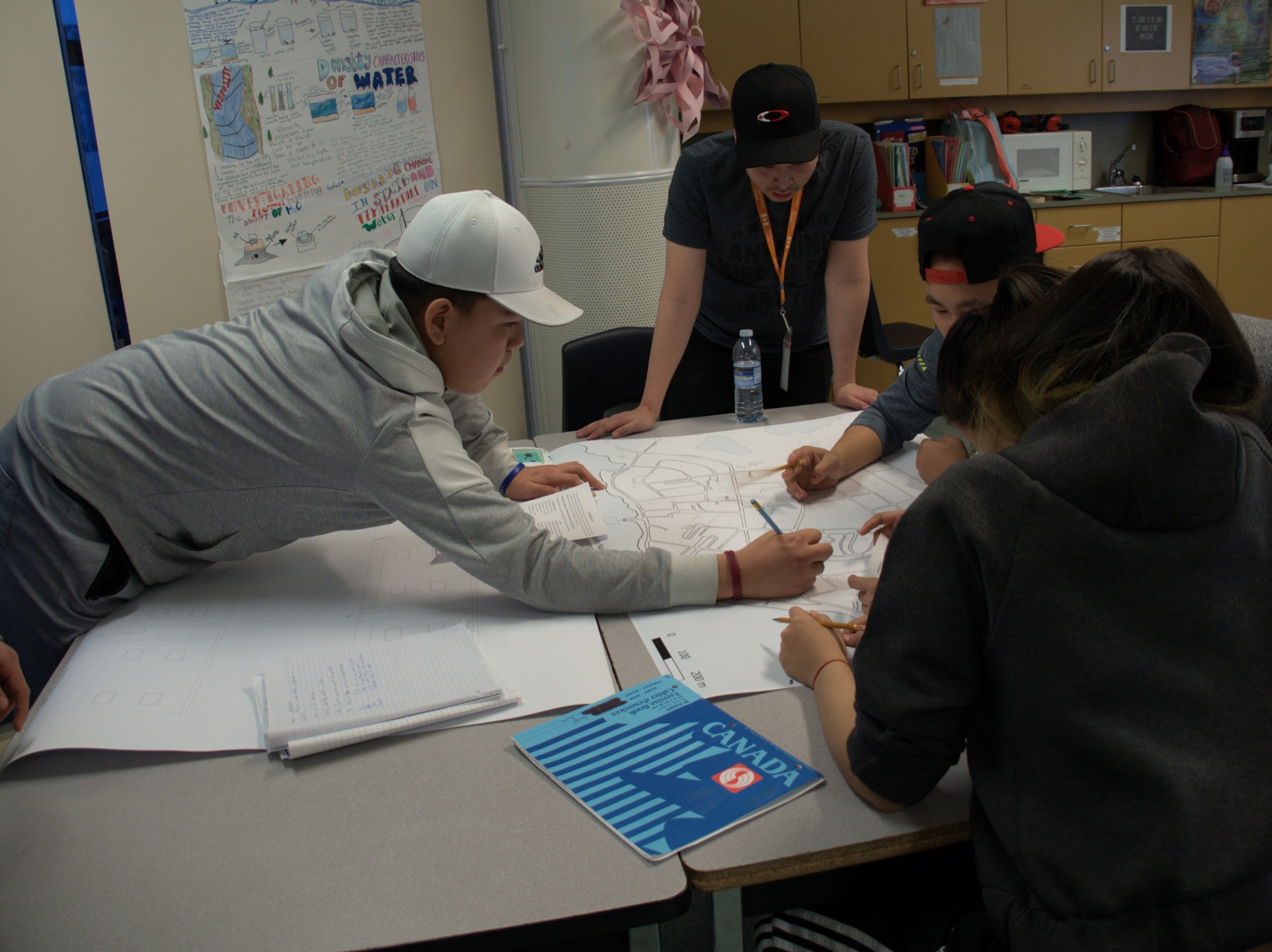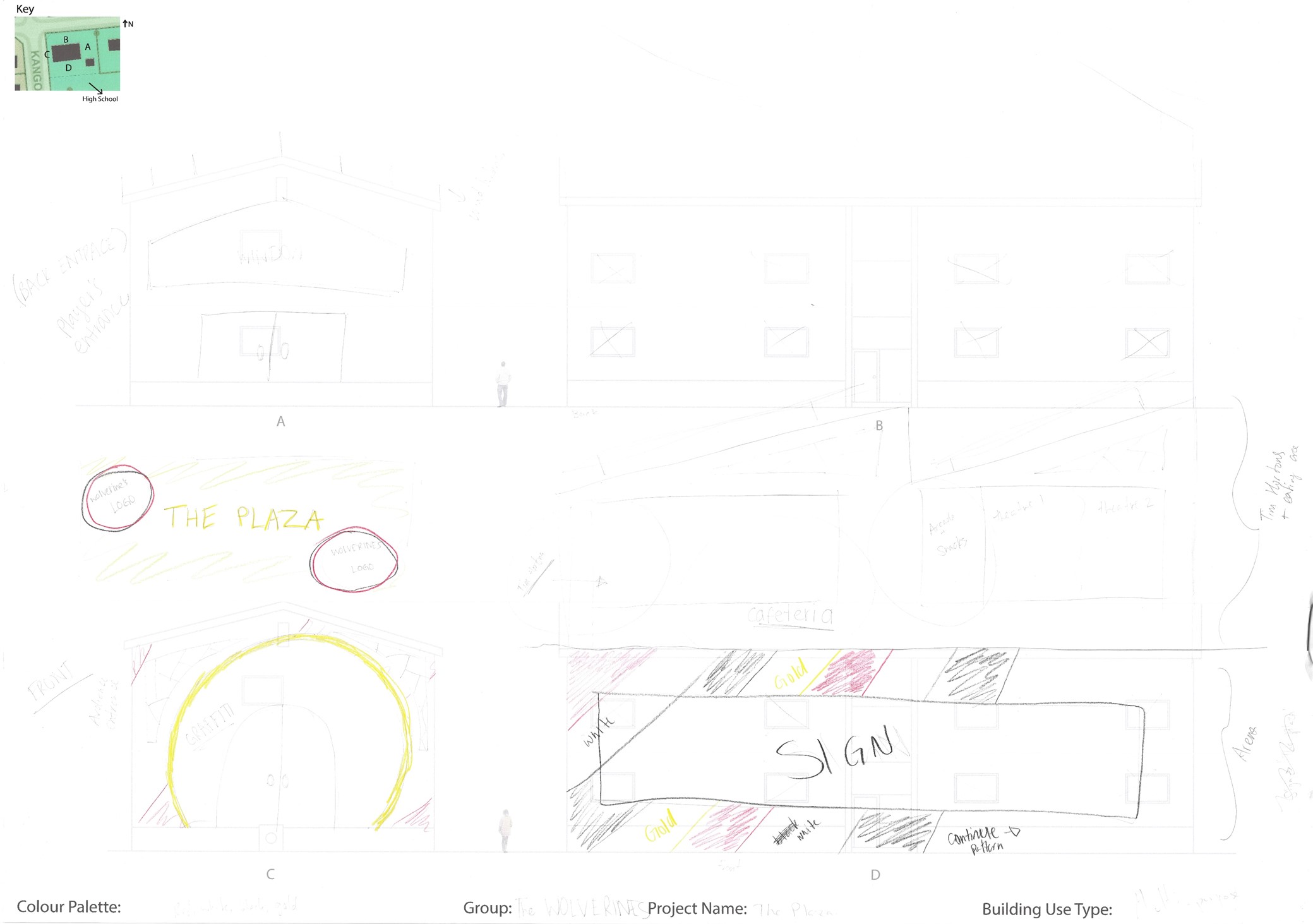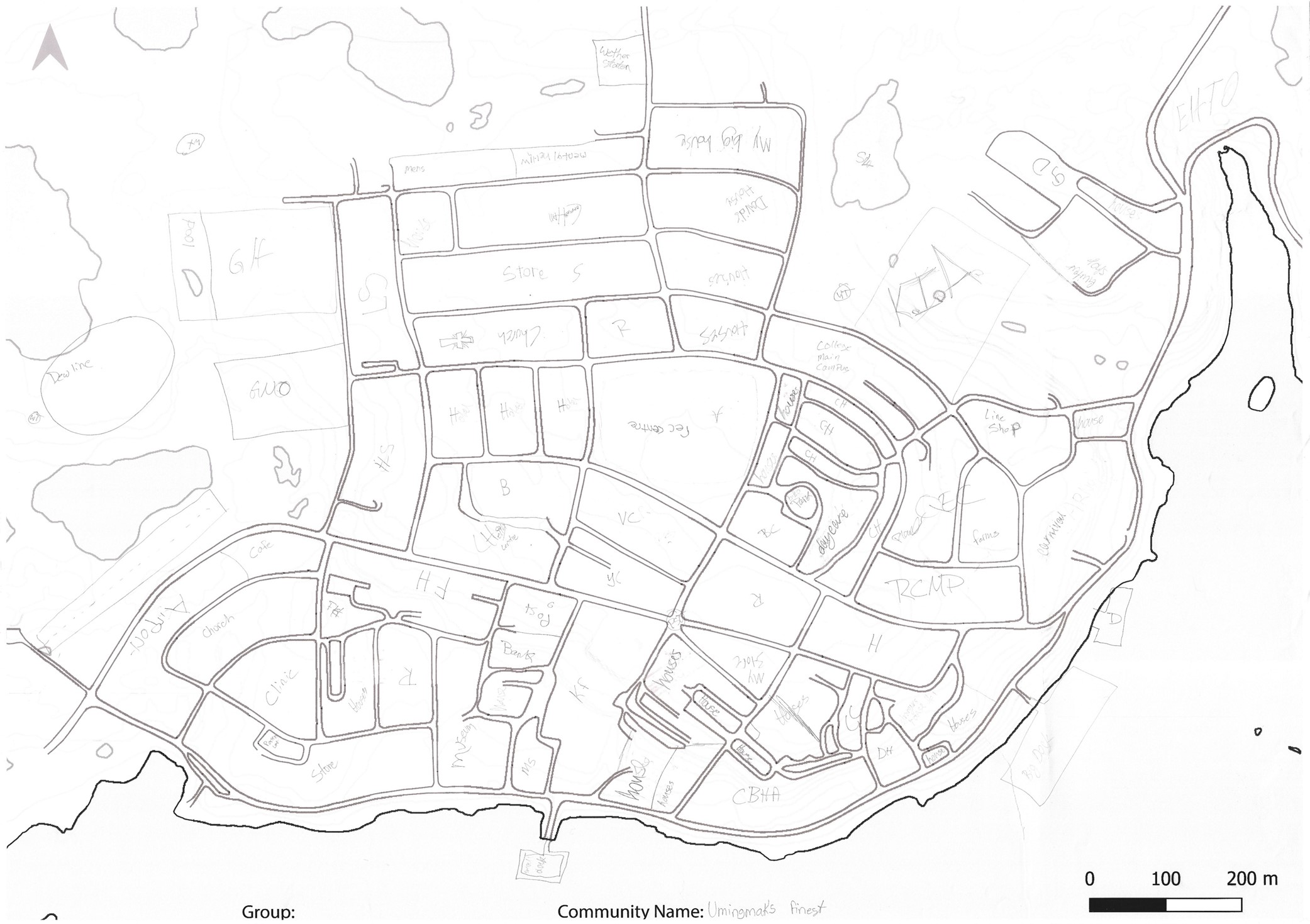Community Planning for the Future: Aula Workshop with the grade 10-12 students from Kiilinik High School in Cambridge Bay, Nunavut
Authors
- A. Nikolaeva, Polar Knowledge Canada, Canadian High Arctic Research Station, Cambridge, Nunavut, Canada, arina.nikolaeva@polar-polaire.gc.ca
- S. Klengenberg, University of Waterloo, Waterloo, Ontario, Canada
Citation information
Nikolaeva, A. and Klengenberg, S. 2020. Community Planning for the Future: Aula Workshop with the grade 10-12 students from Kiilinik High School in Cambridge Bay, Nunavut. Polar Knowledge: Aqhaliat Report, volume 3, Polar Knowledge Canada, p. 48–51. DOI: 10.35298/pkc.2020.12.eng
Article
One of the mandates of Polar Knowledge Canada (POLAR) is to "advance knowledge of the Canadian Arctic in order to improve economic opportunities; environmental stewardship, and the quality of life of its residents and all other Canadians." POLAR's Science and Technology (S&T) research priorities for 2015–2020 include establishing baseline information to prepare for northern sustainability and catalysing improved design, construction, and maintenance of northern built infrastructure.
On November 22, 2019, Arina Nikolaeva and Spencer Klengenberg delivered an Aula Workshop to the students in Grade 10 to 12 at Kiilinik High School. An overview of POLAR and its S&T goals and priorities was given by Spencer. The presentation included POLAR's mandates, key contributions, pan-northern S&T programs, 2020–2025 S&T goals, and POLAR-led S&T programs. This part of the presentation was intended to give the students an understanding of the Canadian High Arctic Research Station (CHARS) campus in their community, and an overview of the goals to which S&T researchers contribute. This presentation included examples given by Spencer and Arina from their own personal experiences.
A presentation on community planning was given by Arina. It provided an introduction to community planning and different paths in planning (i.e., environmental planning, urban design, policy planning, and Land-Use / Geographic Information Systems). The students were shown zoning maps of Ottawa and Cambridge Bay, and had the opportunity to discuss the differences in zoning, and why the zoning differs between the two communities. The students were also introduced to Greta Thunberg, which included a discussion on community involvement and climate change effects on northern communities. Students were encouraged to use their voice, to take action, and to create positive change in their community.
Two activities were featured in this workshop:
- Cambridge Bay 2.0 activity; and
- The Solar Apartments Revitalization competition.
These activities aimed to tie together the concepts explained during the POLAR and Community Planning presentations by having students consider renewable energy technologies, as well as issues and concerns within their communities, to create unique solutions. The Solar Apartments Revitalization Project became a contest, where the winning team's design was 3D printed and presented to them as a prize. The designs were evaluated based on the following criteria:
- Efficient use of space;
- Use of renewable energy technology; and
- Unique architectural design.
Ultimately, only one of the designs was declared the winner, but all designs were equally creative and worthy of consideration.

Figure 1: Arina Nikolaeva presenting 'Paths in Planning' to the grade 10-12 students in the Aula group at Kiilinik High School.

Figure 2: Spencer Klengenberg assisting one of the grade 10-12 groups with the Cambridge Bay 2.0 activity during a work session period at Kiilinik High School.

Figure 3: 'The Plaza' – the winning design for the Solar Apartments Revitalization competition.

Figure 4: Umingmak's Finest – an example of an Aula group's project design for the Cambridge Bay 2.0 activity.
Acknowledgements
We would like to thank Christopher Arko for creating and a printing 3D model of the winning design for the Solar Apartments Revitalisation Project, Robert Cooke and Christopher Chisholm for their guidance, and Tetra Aaluk for the photography.
Polar Knowledge Canada
For media inquiries, contact:
communications@polar-polaire.gc.ca